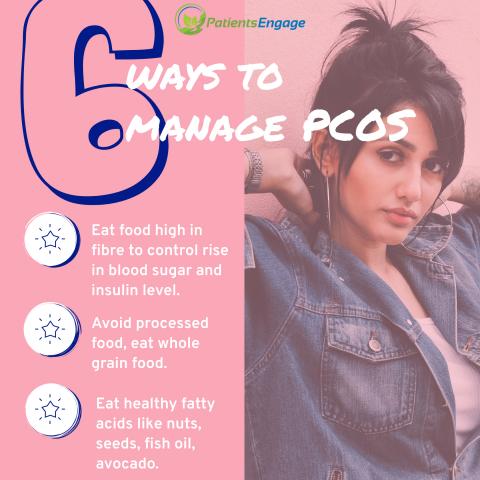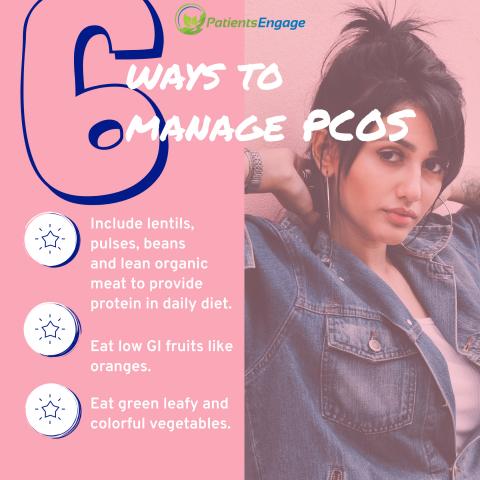
PolyCystic Ovary Syndrome (PCOS) affects millions of women. As little as 5-10% weight loss can help make your cycle more regular. Meenu Agarwal, a clinical dietician based in Singapore shares dietary guidelines for managing PCOS.
PCOS is a common endocrine system disorder among women of reproductive age. It is a condition in which a woman has enlarged ovaries that contain small fluid-filled cysts — called follicles — located in each ovary.
According to the PCOS Foundation:
- PCOS is responsible for 70% of infertility issues in women who have difficulty ovulating.
- 5-10% of women of childbearing age are affected by PCOS.
- Less than 50% of women diagnosed, which means millions of women are left undiagnosed.
- Post menopausal women can also suffer from PCOS.

Active Management of PCOS
Weight management is especially important in keeping PCOS in check. Being overweight worsens insulin resistance and the symptoms of PCOS. As little as 5-10% of weight loss can be instrumental in restoring normal period and making your cycle more regular.
Hard Works To Keep The Kilos Away
Hence, a proper nutrition plan monitored by an experienced nutritionist comes in handy. Adding more whole-grain products, fruits, vegetables, and lean meats to your diet also helps lower blood glucose levels, improve the body’s use of insulin, and normalize hormone levels.
PCOS Motivated Me To Adopt A Healthy Lifestyle
Dietary recommendations for PCOS:
- Specific focus on food with low glycemic index.
- Eat food high in fibre to control rise in blood sugar and insulin level.
- Avoid processed food, eat whole grain food.
- Food rich in minerals like – Iron, calcium, magnesium, potassium and vitamins like vitamin C, E, K and B group vitamins.
- Fruits which are low In Glycemic index must be part of daily diet. e.g, kiwi, blueberries, orange, grapefruit, apple, pear, guava.
- Green leafy and colorful vegetables(spinach, fenugreek, bok choy, amaranth leaves), bottle gourd, Broccoli, Beetroot, artichokes, Okra, Asparagus, eggplant, tomato, zucchini, bell peppers, etc to help ensure inclusion of different antioxidants in body. Anti oxidants helps in distressing the body.
- Fats: essential fatty acids help in nutrient transportation inside our body and are vital for hormone balance, fertility and managing body weight. Sources of healthy fatty acids are: nuts, seeds, fish oil, avocado.
- Include lentils, pulses and beans, lean organic meat to provide protein in daily diet.







